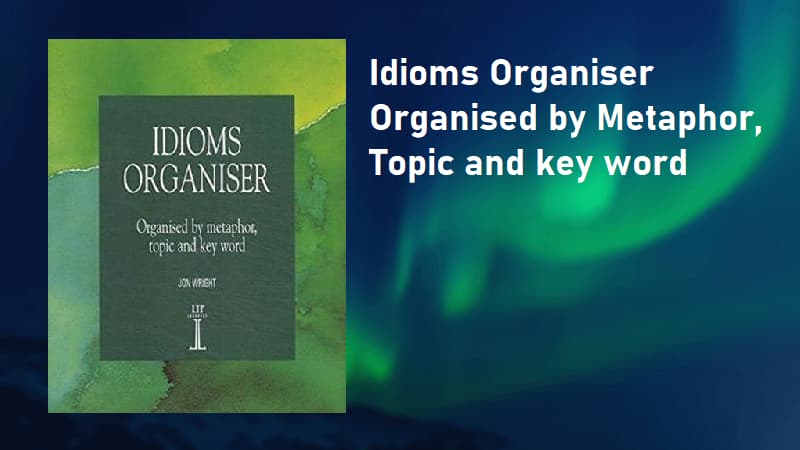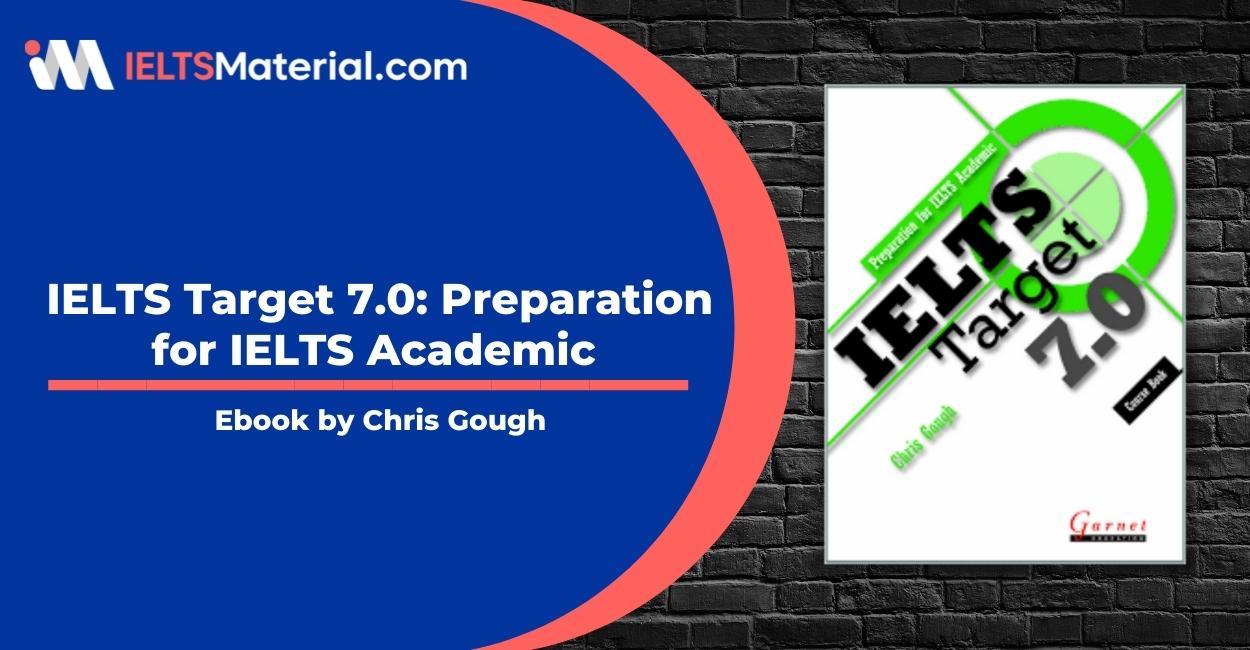Idioms Organiser: Organised By Metaphor, Topic, And Key Word – Jon Wright
Table of Contents
Limited-Time Offer : Access a FREE 10-Day IELTS Study Plan!
Idioms Organiser is a good book teaching idioms with the highly organised system for intermediate and advanced students.
This book is a valuable material for the students who take the FCE, CAE, Proficiency, IELTS và TOEFL exams. It can help you to boost your score in IELTS speaking test with academic idioms which can impress the examiner.
This book organises the most important idioms in English in four sections:
- Areas of metaphor
- Individual metaphor
- Topics
- Key Words
The Author
Jon Wright is co-founder and Director of Studies of The Language Project, Bristol, a small school with a special focus on developing innovative learner-centred materials. He has many years’ experience as a teacher, teacher trainer, materials writer and examiner. His other publications
include Basic Grammar, with Dave Willis, for Cobuild, and Dictionaries, in the OUP Resource Books for Teachers Series.
Introductory Unit
1: What is an idiom?
An idiom is an expression with the following features:
1. It is fixed and is recognised by native speakers. You cannot make up your own!
2. It uses language in a non-literal – metaphorical – way.
The following are examples:
1. Tin up to my eyes in work at the moment.
2. At the meeting I felt a bit out of my depth.
3. I was over the moon when I heard she’d had twins!
4. It broke my mother’s heart to see her home burn to the ground.
If you are up to your eyes, you are very busy. If you are out of your depth, you might be in the sea, but you are more likely to be in a situation which you do not understand for some reason. If you are over the moon, you are extremely happy about something. If something breaks your heart, you are very sad about it.
In these examples it is clear that the idiom is a whole expression. This is the traditional view of idioms. But there is a lot more language which is idiomatic. For example, there are lots of individual words with idiomatic uses. On page 3 we saw that catch has many more uses than the literal one of catching a fish. Here are more examples:
Literal Use Idiomatic Use
1. The river flooded several villages. The crowd flooded on to the pitch.
2. Piles of rubbish lay everywhere. He’s got piles of money.
3. I love roast potatoes. Euthanasia. Now, that’s a very hot potato!
4. I’ve got an uncle at sea. I’m all at sea.
Task 1: Identify the idioms
Underline the idioms and idiomatic expressions in the following sentences:
1. I’m feeling a bit under the weather this morning.
2. We arrived in the nick of time.
3. I know London like the back of my hand.
4. Do you think you could pull a few strings for me?
5. I couldn’t get a word in edgeways.
6. I’m fed up with the rat race.
7. My father thought I would follow in his footsteps.
8. Hurry up! You’re cutting it a bit fine, aren’t you?
9. Let’s look on the bright side, shall we?
10. Come on. we can’t just sweep this under the carpet.
We are familiar with the idea of heavy rain causing a river to overflow and flood the surrounding area; crowds are often described as water and the same verb flood is used. The literal meaning of pile is a heap of something; piles of money, however, simply means lots of money. A hot potato is not for eating; it means a controversial issue. An uncle at sea works on a boat; if you are at sea, it means you are in a situation which you do not understand and where you cannot cope.
Idioms Organiser takes a broad view of idiom. In this book you will practise common idioms such as the black sheep of the family, but you will also
practise the huge area of idiomatic usage where words are used with non-literal – metaphorical – meanings.
2: What is a metaphor?
“It was a bit of a hot potato.
Metaphors exist in all languages. You use them in your own language. A metaphor uses one idea to stand for another idea. Above, we saw the simple idea: A crowd is water.
When you have that idea in your mind, the crowd can flow, flood, or trickle. Here are some of the common metaphors practised in this book:
1. Time is money.
We save time. We can spare 5 minutes. We can run out of time.
2. Business is war.
Advertising is a minefield in which you have targets and keep your sights on what your competitors are doing.
3. Life is a journey.
You can be on the road to recovery. You might be at a crossroads in your life because you are in a dead-end job.
Task 2: What’s the metaphor?
Match the idiomatic expressions on the left (1 – 8) with the metaphors on the right (a – h)
1. I simply can’t afford more than a week off.
2. You win some, you lose some.
3. He had a constant stream of visitors.
4. I think l‘m in a rut.
5. Carry on. but keep your head down.
6. We re going to have to weather the storm.
7. He was a bit hazy about the amount.
8.I just don’t see the point.
a. Moods are weather.
b. A company is a ship.
c. Life is gambling.
d. People are liquid.
e. Seeing is understanding.
f. Business is war.
g. Time is money.
h. Life is a journey.
3: Why are idioms and metaphors so important?
Firstly, they are important because they are very common. It is impossible to speak, read, or listen to English without meeting idiomatic language. This is not something you can leave until you reach an advanced level. All native speaker English is idiomatic. Every newspaper is full of metaphorical language. You cannot avoid it or leave it till later.
The second reason is that very often the metaphorical use of a word is more common today than its literal use. For example, we know that farmers plough their fields, but you can plough through a long novel or report; you can plough on with your work; you can plough money into a business; profits can be ploughed back into a company; a lorry can plough into a row of parked cars. Using plough in its literal farming meaning is now much
rarer than all its other non-literal uses.
But it is important for you to know the literal meaning. Often the literal meaning creates a picture in your mind and this picture makes the other meanings easier to understand.
4: Are idioms spoken or written English?
Both! Some people think that idiomatic language is more informal and, therefore, common only in spoken English. This is not true. Idiomatic language is as fundamental to English as tenses or prepositions. If you listen to people speaking, or if you read a novel or a newspaper, you will meet idiomatic English in all situations.
Buy from Amazon
Also check :
Start Preparing for IELTS: Get Your 10-Day Study Plan Today!
Check out other General eBooks

Janice Thompson
Nehasri Ravishenbagam

Nehasri Ravishenbagam

Nehasri Ravishenbagam






Post your Comments